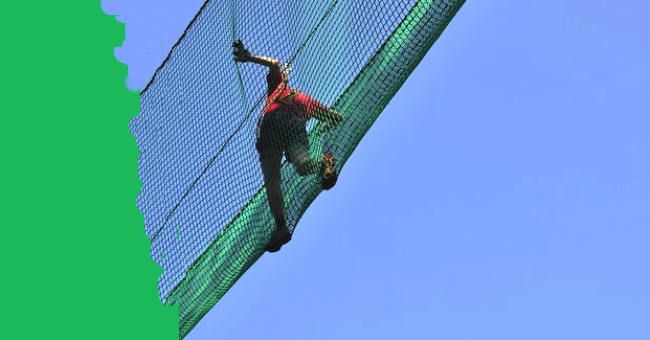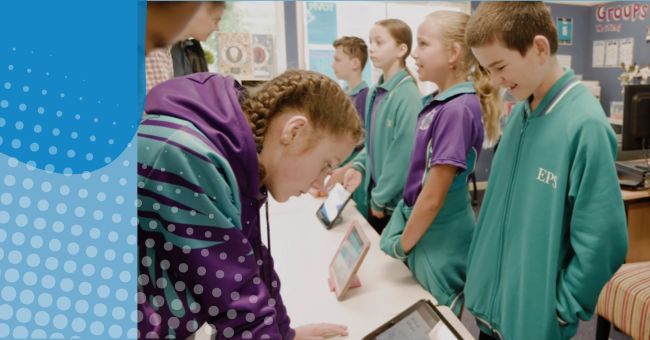Real Purpose
Lauren Passmore, Stage 3 Teacher, shares how she gets students really engaged with learning! It’s your mathematics block. You’ve poured hours into...

The future is never far from students' minds, writes Neelam Davies from Kristin School, NZ. Even the quietest student is thinking deeply, slowly building a story they want to tell about about their future, if we can invite and support them to share it.
Neelam Davies is Senior School Assistant Principal of Kristin School, New Zealand. She has used the BECOME program with her Year 8-12 students with fantastic results, using it to help them make a proposal for their senior years subject selections. Neelam is a guest speaker in our short course for all teachers, explaining why every teacher, regardless of their expertise in career development, is so important to how students shape their aspirations for the future. She writes:
Students never cease to amaze me with the insights and ideas they share.
I’ve learned that even the quietest student is thinking deeply about their future. They're often waiting for the right moment to express it.
Every student has a story to tell.
But crafting a story takes time. - And it's no different when it's a career story about who future me might be.
Having worked with students across all the high school years, I've found a few top ways to help a student fidn the story about careers they want to tell.
My role is to support each student to tell and retell that story in all its varieties, so they can try it on in many ways. changing it and looking at how a career idea fits for them.
For young people, the concept of time is different. They don't have the length of experience adults do. This can make thinking about the future or even imagining the future challenging.
As educators, we need to take time into account when guiding students to consider their future pathways and aspirations. Introducing career ideas, themes and concepts gradually and in stages throughout a student’s education is essential.
Developing a programme of career education to meet students at the right stage and multiple places, be that Year 8 through to Year 13 ( here in NZ), has provided many benefits:
 Benefit 3: Building confidence
Benefit 3: Building confidence
By giving students time and space to reflect, adjust, and try new strategies, we help them prepare for a future that is constantly evolving.
We should be empowering them.
To be honest, the only constant they can truly control is their agency to think and adapt, so let’s give our young people these tools and, in particular, TIME - and see where that takes them.
I think that sounds like a story I would like to read, don’t you?
Extract from a letter from Ella, looking back over 3 years of careers education:
"I joined Kristin at the beginning of year 9 and have since grown, learned and thrived as not only a student but an individual. I am now reaching the final chapter of my high school journey in my last year, I look back with gratitude for the guidance and opportunities that have shaped me.
 Become Education introduced the idea of careers being less about choosing a “job” and more about exploring who I want to become.
Become Education introduced the idea of careers being less about choosing a “job” and more about exploring who I want to become.
At first, I didn’t comprehend the importance or how relevant this concept was, but as I moved through school and was faced with the challenge of subject choices, I soon realised the significance of the Become concepts.
Asking yourself “Who do you want to be?” is a broad and daunting question.
It can feel like the weight of your entire future rests on decisions made at such a young age. While there is some truth to that, it shouldn’t be a thought that fills you with fear. Your future is something exciting, something you can work towards and shape yourself. Having the freedom to make these choices is a privilege, and it’s important to remember that nothing is truly final. It’s okay to change your mind. It’s okay to ask for help when the choices feel overwhelming. What matters is trusting yourself and recognising that every decision you make will bring both lessons and blessings.
There is no “final destination” when it comes to education or careers. We are constantly evolving, learning, and adapting. I don’t believe in regrets, it is an easy trap to fall into, leading you into endless “what ifs.” Instead, I believe in seeing every step, even the missteps, as part of the journey.
You are in control of the decisions you make. Your future is not something that happens to you, it’s something you create, one decision at a time. Whenever I felt lost or uncertain in terms of my next steps, Become was a reminder that there is no single “right” path and that it’s okay not to have everything figured out straight away.
With this mindset, I began to approach subject selection with purpose. I kept my pathways open, balancing my personal interests with opportunities to explore new ones. Alongside subjects I loved, such as Psychology, English, and History, I also chose Chemistry and Statistics, knowing they would keep a wide range of doors open. I also learned, these subjects didn’t just serve as “backups”, they provided me with opportunities and knowledge but most importantly, these subjects validated my passions in other areas.
Through this process, I discovered how powerful it is to follow genuine interest. It’s in the subjects we truly care about that we work hardest, think most creatively, and succeed to our full potential.
Now, as I prepare to study Law and Psychology at university, I carry forward the confidence that I am not limited to one path, that my curiosity will continue to guide me, and my interests will lead me to where I will thrive most.

 Our new short course is about where and how all teachers have a powerful impact on students' emerging ideas for the future.
Our new short course is about where and how all teachers have a powerful impact on students' emerging ideas for the future.
Join us online for this concise, evidence-based and contemporary quick deep-dive.

Lauren Passmore, Stage 3 Teacher, shares how she gets students really engaged with learning! It’s your mathematics block. You’ve poured hours into...

“Curiosity will conquer fear more than bravery will.” James Stephens, Novelist and Poet Facing the future is anxious work for many of our students....

Quick quiz! What does your school's motto or slogan say? Got it in mind? Great. Now here's the important bit: Does the school slogan relate to the...